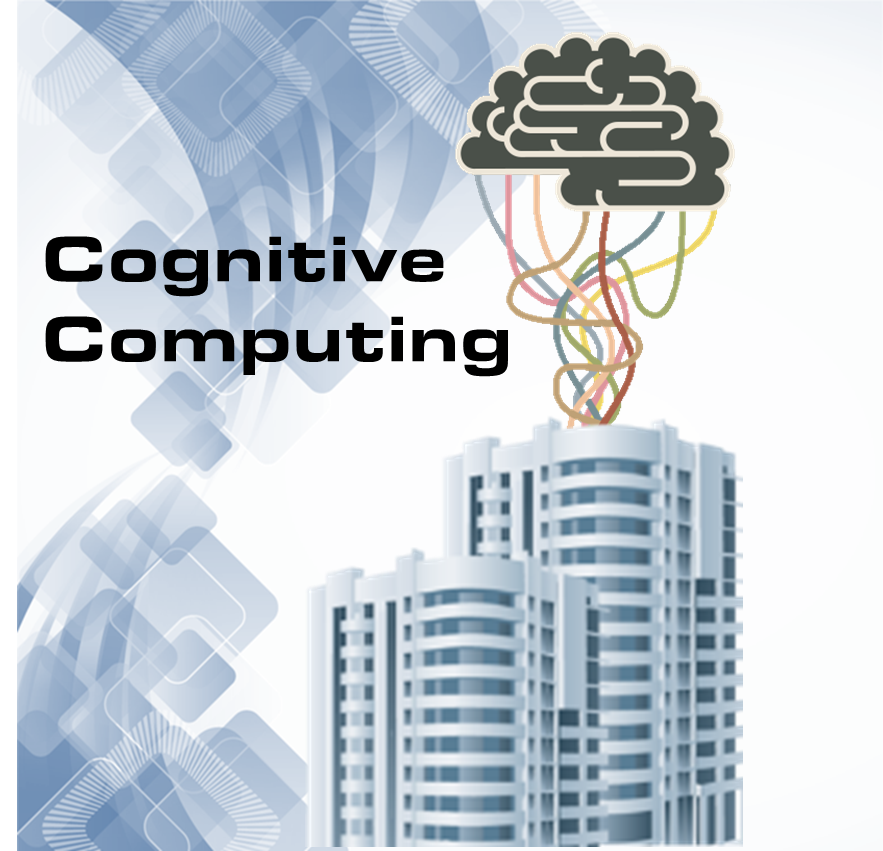The term cognitive computing was first adopted by IBM as an alternative to the term artificial intelligence (AI). When Bloomberg Businessweek Editor Megan Murphy (@meganmurp) asked IBM’s Ginni Rometty (@GinniRometty), why IBM chose cognitive computing over the more familiar artificial intelligence term, Rometty replied, “It was really a very thoughtful decision. The world calls it AI. There’s so much fearmongering about AI. When we started over a decade ago, the idea was to help you and I make better decisions amid cognitive overload. That’s what has always led us to cognitive.”[1] Although IBM selected the term cognitive computing to avoid the fearmongering associated with AI, the fact of the matter is that cognitive computing is much more than a gimmicky name.
Defining Cognitive Computing
Cognition is defined as “the action or process of acquiring knowledge and understanding through thought, experience, and the senses.” Of course, that definition has to be modified slightly when applied to a “cognitive” machine. A cognitive system is a system that discovers knowledge, gains insights, and establishes relationships through analysis, machine learning, and sensing of data. I define cognitive computing as a combination of semantic reasoning (i.e., the use of machine learning, natural language processing, and ontologies) and computational intelligence (i.e., advanced analytics). There are, however, a number of approaches that fall under the cognitive computing rubric. Most of those approaches involve machine learning, natural language processing, and advanced analytics. My company’s entry in this field is called the Enterra Enterprise Cognitive System™ (AILA™) — a system that can Sense, Think, Act, and Learn®. The importance of cognitive platforms for businesses is their ability to tackle new kinds of challenges. Jenna Hogue explains, “The types of problems [involved in cognitive systems] … tend to be much more complex and human-like than the average non-cognitive system. These problems tend to comprise multiple different variables included, shifting data elements, and an ambiguous nature.”[2]
Cognitive Computing and Decision-making
During her interview with Murphy, Rometty noted, “If I considered the initials AI, I would have preferred augmented intelligence. It’s the idea that each of us are going to need help on all important decisions. I’m always reminded of an interesting statistic: When you’re asked what percentage of your decisions are right, what percentage would you get? A study said on average that a third of your decisions are really great decisions, a third are not optimal, and a third are just wrong.” Optimizing decisions (i.e., increasing the number of great decisions you make and decreasing the number of wrong decisions) can provide an obvious competitive advantage to any business. Bain analysts, Michael C. Mankins and Lori Sherer (@lorisherer) note, decision making is one of the most important aspects of any business. “The best way to understand any company’s operations,” they write, “is to view them as a series of decisions.”[3] They elaborate:
“People in organizations make thousands of decisions every day. The decisions range from big, one-off strategic choices (such as where to locate the next multibillion-dollar plant) to everyday frontline decisions that add up to a lot of value over time (such as whether to suggest another purchase to a customer). In between those extremes are all the decisions that marketers, finance people, operations specialists and so on must make as they carry out their jobs week in and week out. We know from extensive research that decisions matter — a lot. Companies that make better decisions, make them faster and execute them more effectively than rivals nearly always turn in better financial performance. Not surprisingly, companies that employ advanced analytics to improve decision making and execution have the results to show for it.”
Augmenting human decision-making with cognitive systems provides an obvious advantage. At the Enterra Solutions 2017 Cognitive Computing Summit, Benn R. Konsynski (@Konsynski), the George S. Craft Distinguished University Professor of Information Systems and Operations Management at Emory University’s Goizueta Business School, asserted the emergence of cognitive computing systems capable of autonomous decision-making requires business leaders to rethink how decision rights are reallocated in the enterprise. In an article he co-authored with Dr. John Sviokla (@jjsviokla), a principal and U.S. Advisory Innovation Leader with PwC, they coined the term “cognitive reapportionment.” They wrote, “We suggest the idea that the organization can be conceived of as bundles of decisions and that these bundles can be allocated across humans, systems, or combinations of humans and systems. Also, we suggest that the allocation of these cognitive responsibilities can be dynamic — taking into account the user, the system status, and the decision environment.”[4] In other words, cognitive computing systems can go beyond augmenting human decision-making to include automated decision-making.
Summary
Dan Briody, Senior Editor of THINK Leaders, writes, “The applications of cognitive computing to business are endless. Some experts believe that this technology represents our best — perhaps our only — chance to tackle some of the most enduring systemic issues facing our planet, from understanding climate change to identifying risk in our increasingly complex economy.”[5] Judith Lamont explains, “Cognitive computing enables a ‘learn-as-you-go’ approach; rather than presenting the system with right and wrong answers, it reinforces the right ones as they are uncovered. Many cases can be made for the importance of adaptability and being able to learn on the fly.”[6] Jennifer Zaino (@Jenz514) asserts, “Cognitive Computing increasingly will be put to work in practical, real-world applications. The industries that are adopting it are not all operating at the same maturity levels; there remain some challenges to conquer. The wheels are very much in motion to make cognitive-driven Artificial Intelligence (AI) applications a key piece of enterprise toolsets.”[7] Because cognitive computing systems are so adaptable, Accenture analysts call cognitive computing “the ultimate long-term solution” for many of businesses’ most nagging challenges.[8] Cognitive computing is clearly part of the AI family, but there is more to it than simply being a gimmicky name used to ease fears about humans falling to AI overlords.
Footnotes
[1] Megan Murphy, “Ginni Rometty on the End of Programming,” Bloomberg BusinessWeek, 20 September 2017.
[2] Jenna Hogue, “Cognitive Computing: The Hype, the Reality,” Dataversity, 12 January 2017.
[3] Michael C. Mankins and Lori Sherer, “Creating value through advanced analytics,” Bain Brief, 11 February 2015.
[4] Benn R. Konsynski and John J. Sviokla, “Cognitive Reapportionment: Rethinking the Location of Judgment in Managerial Decision Making,” in The Post-Bureaucratic Organization edited by Charles Heckscher and Anne Donnellon, Sage Publications (1994).
[5] Dan Briody, “New Vocabulary: Cognitive Computing,” THINK Leaders, October 2015.
[6] Judith Lamont, “Understanding cognitive computing: How much is enough?” KMWorld, 1 September 2016.
[7] Jennifer Zaino, “Cognitive Computing, Artificial Intelligence Apps Have Big Future in the Enterprise,” Dataversity, 17 September 2015.
[8] “From Digitally Disrupted to Digital Disrupter,” Accenture, 2014.





